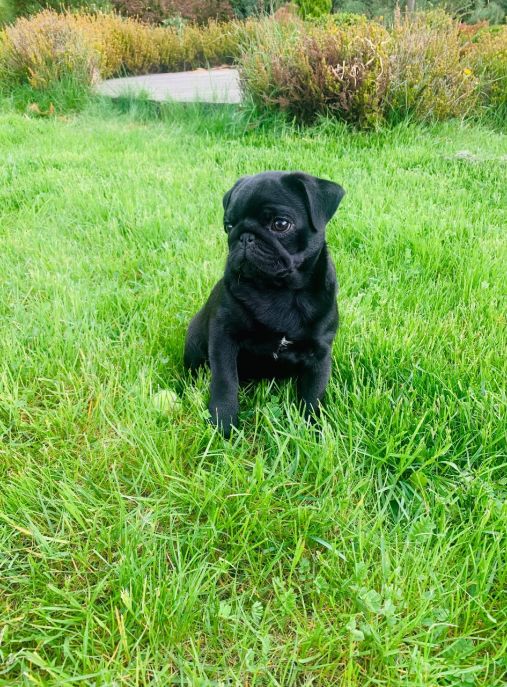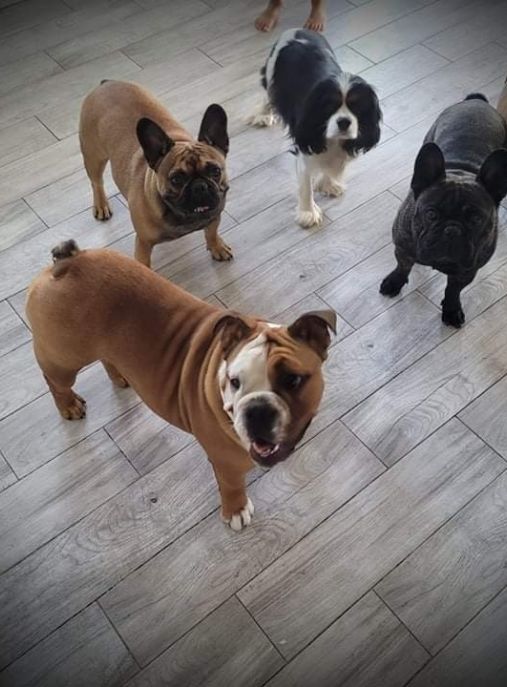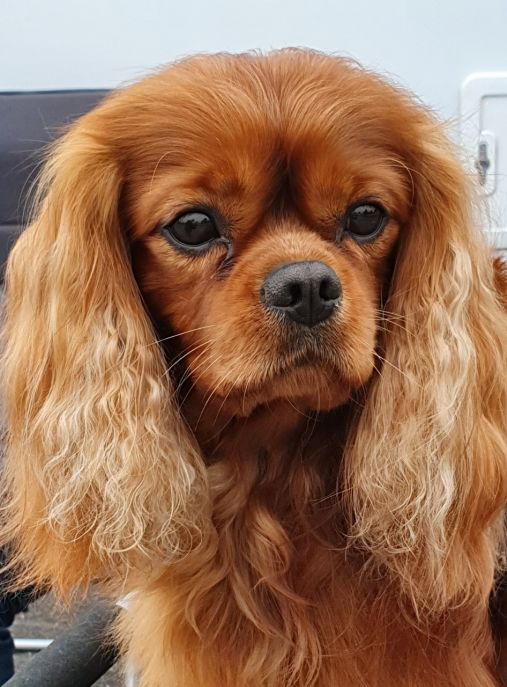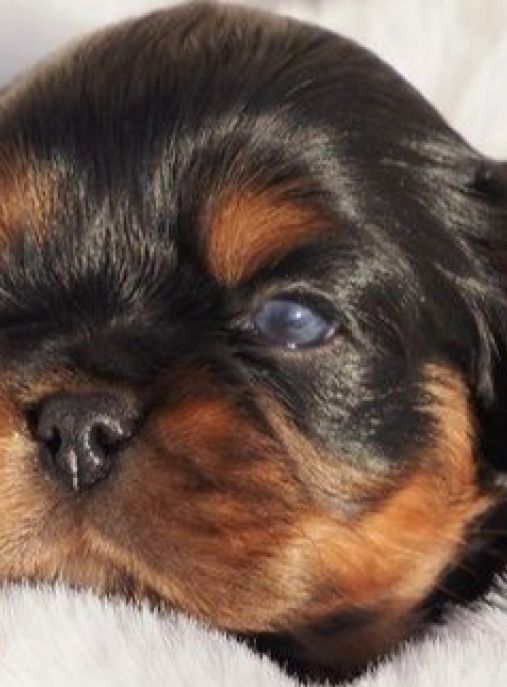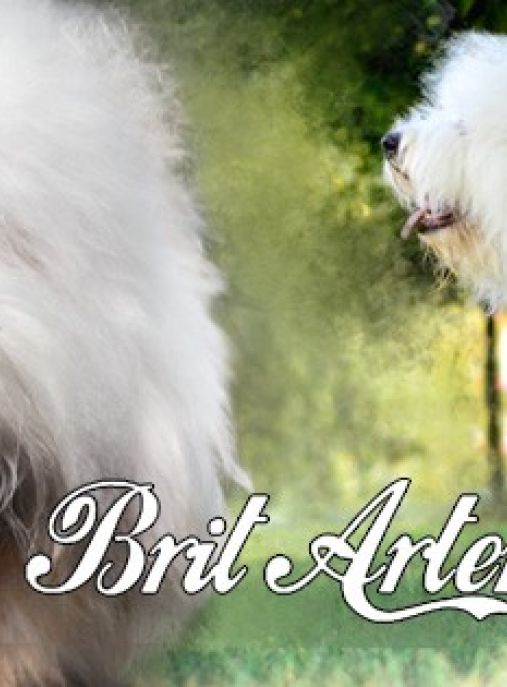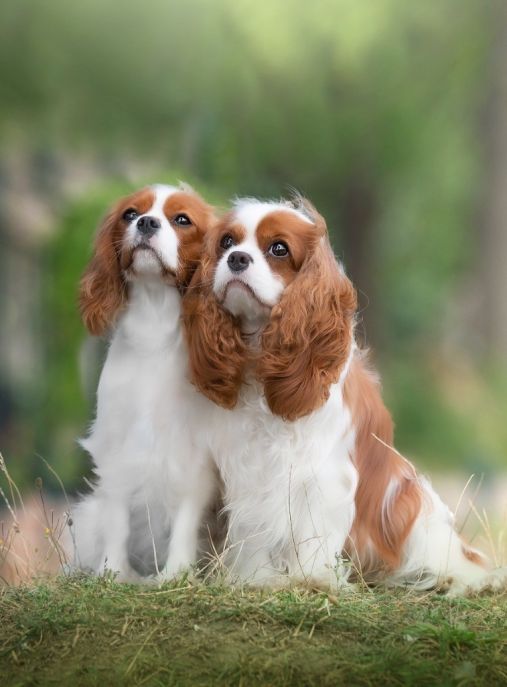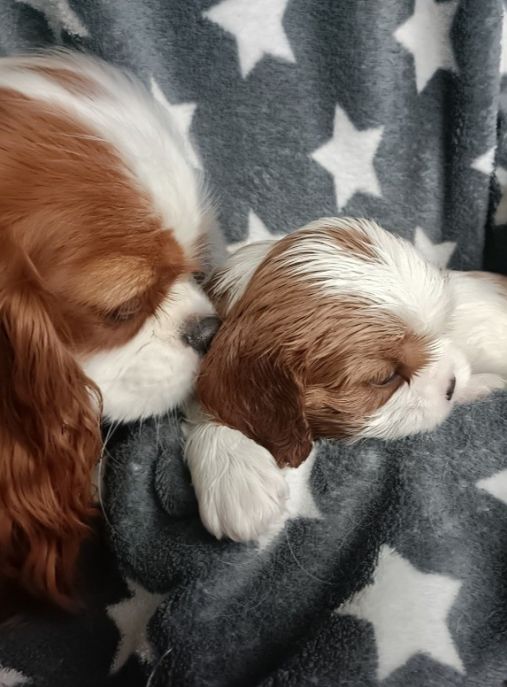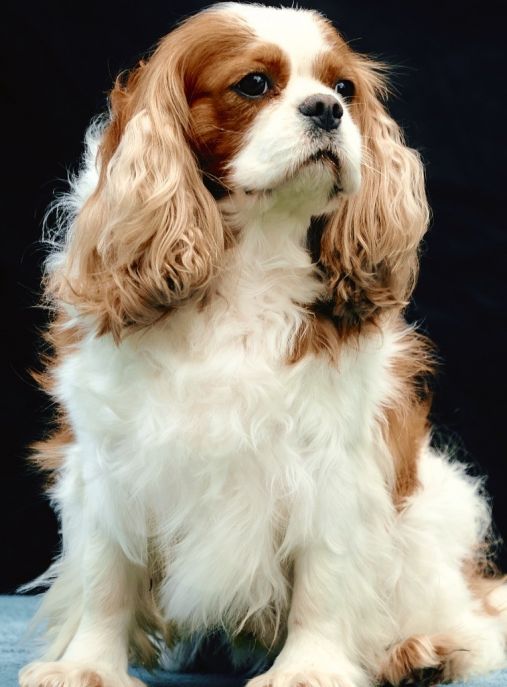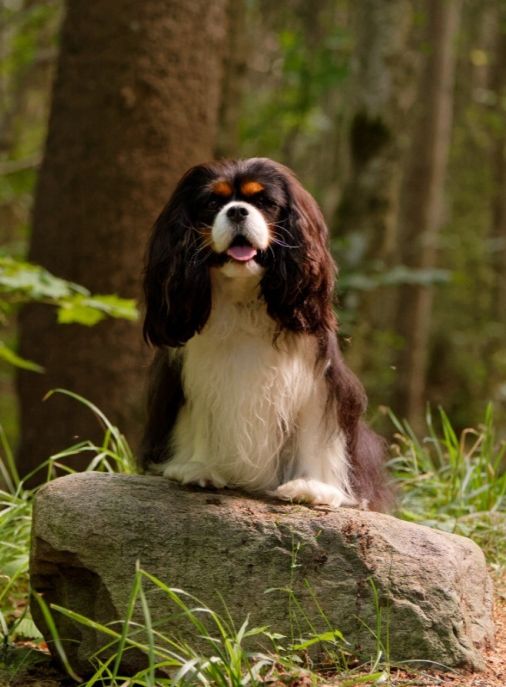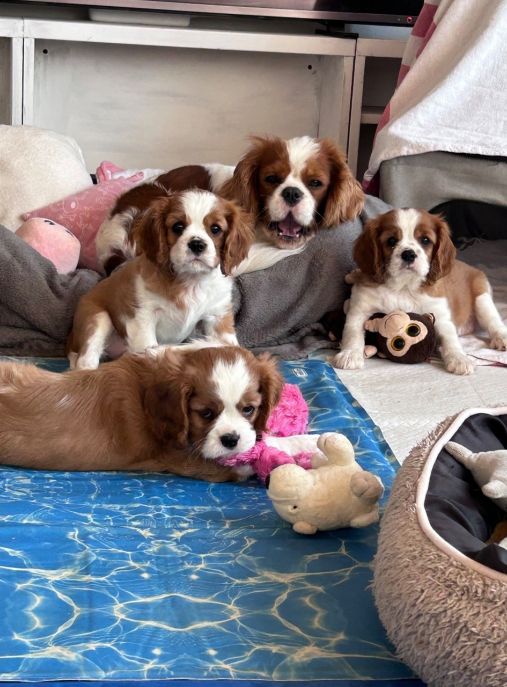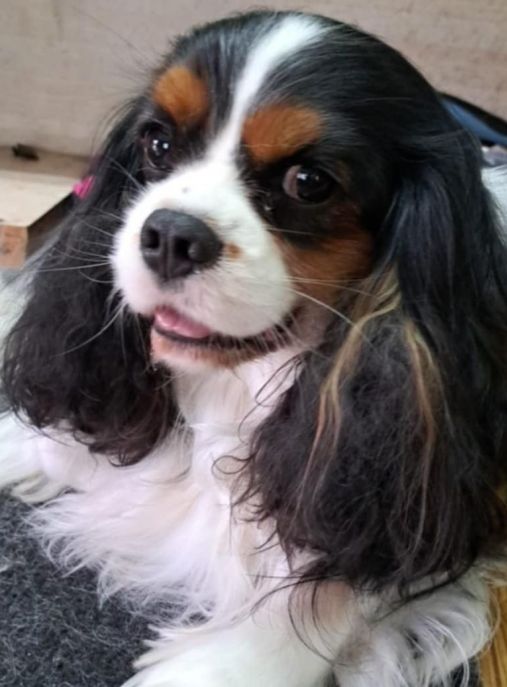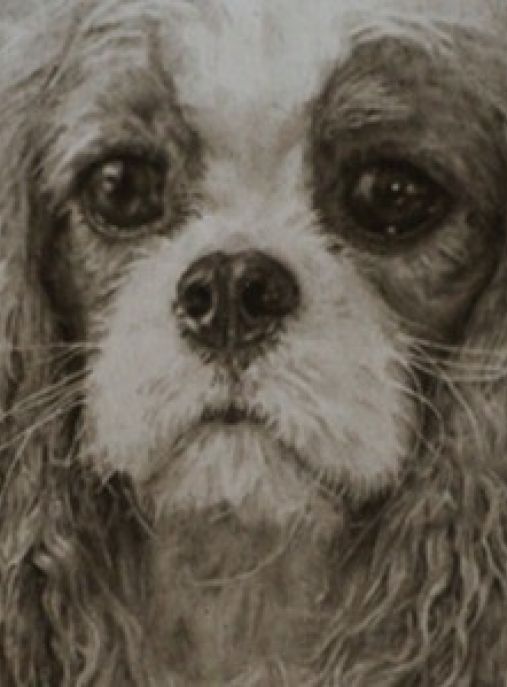The Cavalier King Charles Spaniel is a small and elegant dog breed known for its friendly and affectionate nature. With its distinctive long, silky coat and expressive eyes, this breed has captured the hearts of dog lovers worldwide. Originating from the United Kingdom, the Cavalier King Charles Spaniel has a rich history and is cherished for its companionship and loyalty.
The history of the Cavalier King Charles Spaniel dates back to the 16th century when they were first bred as companion dogs for nobility. They were particularly favored by King Charles II, who was known for his deep affection for these dogs. The breed's name is a tribute to this monarch, who ruled England during the Restoration period.
According to the FCI (Fédération Cynologique Internationale) typology, the Cavalier King Charles Spaniel belongs to Group 9 - Companion and Toy Dogs. This group includes small-sized dogs that are primarily bred for companionship and are known for their friendly and sociable nature.
Cavalier King Charles Spaniels are ideal pets for individuals and families alike. They thrive in a loving and nurturing environment and are known for their gentle and patient temperament. These dogs are excellent with children and get along well with other pets, making them a perfect addition to any household.
In terms of physical characteristics, the Cavalier King Charles Spaniel is a small-sized breed. On average, they weigh between 13 to 18 pounds (5.9 to 8.2 kilograms) and stand at a height of around 12 to 13 inches (30 to 33 centimeters) at the shoulder. Their compact size makes them suitable for both apartment living and larger homes.
The life expectancy of a Cavalier King Charles Spaniel is typically between 9 to 14 years, although some individuals have been known to live even longer with proper care and attention. Regular exercise, a balanced diet, and routine veterinary check-ups are essential for maintaining their overall health and well-being.
One of the most distinctive features of this breed is their beautiful coat. Cavalier King Charles Spaniels have long, silky hair that requires regular grooming to prevent matting and tangling. Their coat comes in various colors, including Blenheim (chestnut markings on a white background), Tricolor (black and white with tan markings), Black and Tan, and Ruby (solid red).
Despite their small size, Cavalier King Charles Spaniels are energetic and enjoy daily exercise. They are well-suited for walks, playtime, and even agility training. However, it's important to note that they are not high-energy dogs and do not require excessive exercise.
Cavalier King Charles Spaniels are known for their intelligence and trainability. They respond well to positive reinforcement techniques and enjoy learning new tricks and commands. Early socialization and obedience training are crucial to ensure they grow up to be well-mannered and obedient companions.
In addition to their charming personality and physical attributes, Cavalier King Charles Spaniels are prone to certain health issues. These can include heart conditions, eye problems, and neurological disorders. Responsible breeders conduct health screenings and genetic testing to minimize the risk of these conditions in their breeding lines.
In conclusion, the Cavalier King Charles Spaniel is a delightful and loving breed that brings joy and companionship to its owners. With their affectionate nature, beautiful appearance, and adaptability to various living situations, these dogs have rightfully earned their place as beloved family pets. Whether you're looking for a loyal companion or a friendly playmate for your children, the Cavalier King Charles Spaniel is sure to steal your heart.
The Cavalier King Charles Spaniel is a delightful and charming breed known for its friendly and affectionate nature. With their expressive eyes, silky coat, and wagging tail, these dogs have a character that is hard to resist. They are often referred to as "love sponges" due to their desire for constant companionship and their eagerness to please their owners.
One of the most prominent traits of Cavalier King Charles Spaniels is their gentle and loving disposition. They thrive on human interaction and are incredibly social animals. They are known to be excellent family pets, getting along well with children and other animals. Their friendly nature makes them poor guard dogs, as they are more likely to greet strangers with a wagging tail than with suspicion.
These dogs are also highly adaptable and can easily adjust to various living situations. Whether you live in a small apartment or a spacious house, the Cavalier King Charles Spaniel will be content as long as they have their loved ones close by. However, they do require regular exercise to keep them physically and mentally stimulated. Daily walks and playtime in a secure area are essential to prevent them from becoming bored or developing destructive behaviors.
Training a Cavalier King Charles Spaniel is generally a pleasant experience, as they are intelligent and eager to please. They respond well to positive reinforcement techniques, such as treats, praise, and play. Harsh training methods or punishment should be avoided, as it can lead to fear or anxiety in these sensitive dogs. Consistency and patience are key when teaching them commands and house rules.
Socialization is crucial for Cavalier King Charles Spaniels from an early age. Exposing them to different people, animals, and environments will help them develop into well-rounded and confident dogs. They are generally friendly with strangers, but early socialization can help prevent any potential shyness or fearfulness.
Cavalier King Charles Spaniels are prone to separation anxiety, so it is important to gradually accustom them to being alone for short periods. Crate training can be beneficial in providing them with a safe and secure space when left alone. Leaving them with interactive toys or puzzle feeders can also help keep them occupied and prevent boredom.
Grooming is another aspect to consider when raising a Cavalier King Charles Spaniel. Their long, silky coat requires regular brushing to prevent matting and tangling. Additionally, they may need professional grooming every few months to maintain their coat's health and appearance. Regular ear cleaning and dental care are also essential to prevent any potential health issues.
In conclusion, Cavalier King Charles Spaniels are loving, adaptable, and sociable dogs that make excellent companions for individuals and families alike. With proper training, socialization, and care, they can thrive in various living situations. Their affectionate nature and desire to please their owners make them a beloved breed for many dog lovers.
Cavalier King Charles Spaniels are beloved for their friendly and affectionate nature, making them wonderful companions for families and individuals alike. To ensure the health and happiness of these adorable dogs, it is essential to provide them with proper care and attention. Here is an extensive description of recommended care for Cavalier King Charles Spaniels, including tips on what to do and what not to do.
1. Nutrition:
- Do: Feed your Cavalier King Charles Spaniel a balanced and high-quality diet that meets their specific nutritional needs. Consult with your veterinarian to determine the appropriate portion sizes and feeding schedule.
- Do: Provide fresh and clean water at all times to keep your dog hydrated.
- Don't: Overfeed your Cavalier King Charles Spaniel, as they are prone to obesity. Avoid giving excessive treats or table scraps, which can lead to weight gain and health issues.
2. Exercise:
- Do: Engage your Cavalier King Charles Spaniel in regular exercise to keep them physically fit and mentally stimulated. Daily walks, playtime, and interactive toys are great ways to meet their exercise needs.
- Do: Supervise outdoor activities, as Cavaliers can be prone to chasing small animals due to their hunting instincts.
- Don't: Overexert your dog, especially during hot weather. Cavaliers are brachycephalic, meaning they have a shortened snout, which can make them more susceptible to heatstroke. Avoid intense exercise during peak temperatures.
3. Grooming:
- Do: Regularly brush your Cavalier King Charles Spaniel's silky coat to prevent matting and keep it looking healthy. Aim for at least two to three times a week.
- Do: Pay special attention to their ears, as Cavaliers are prone to ear infections. Clean their ears gently and regularly to prevent wax buildup and infections.
- Don't: Shave your Cavalier King Charles Spaniel's coat, as it provides insulation and protection from the sun. Trimming the hair around their paws and ears is acceptable but avoid excessive grooming.
4. Health Care:
- Do: Schedule regular veterinary check-ups to monitor your dog's overall health and address any potential issues promptly. Cavaliers are prone to certain health conditions like heart disease, syringomyelia, and patellar luxation.
- Do: Keep up with vaccinations, parasite prevention, and dental care as recommended by your veterinarian.
- Don't: Ignore any signs of discomfort or changes in behavior. Cavaliers are known to be stoic, so it's crucial to be vigilant and seek veterinary attention if needed.
5. Socialization and Training:
- Do: Socialize your Cavalier King Charles Spaniel from a young age to ensure they are comfortable around people, other animals, and various environments. Expose them to different situations, sounds, and experiences.
- Do: Use positive reinforcement techniques, such as treats and praise, to train your dog. Cavaliers are intelligent and eager to please, making them responsive to training.
- Don't: Use harsh or punitive training methods, as it can damage the trust and bond between you and your dog.
Remember, Cavaliers thrive on love, attention, and companionship. They are happiest when they are part of the family and included in daily activities. By providing them with proper care, you can ensure a long and fulfilling life for your Cavalier King Charles Spaniel.
The Cavalier King Charles Spaniel is a charming and elegant breed known for its distinctive coat colors. One of the most common and beloved colors seen in these dogs is the rich and lustrous chestnut brown, often referred to as "Blenheim" in the Cavalier world.
The Blenheim Cavalier King Charles Spaniel showcases a stunning combination of white and chestnut markings. The base color of their coat is a pearly white, which serves as a canvas for the beautiful chestnut patches that adorn their body. These patches are typically found on the ears, around the eyes, and on the back, creating a striking contrast against the white background.
The chestnut markings on a Blenheim Cavalier are characterized by their deep, warm tone. The color can range from a light, golden chestnut to a darker, mahogany shade. The richness of the chestnut hue often adds a touch of elegance and sophistication to the overall appearance of the dog.
One of the most distinctive features of the Blenheim Cavalier King Charles Spaniel is the presence of a unique marking on their head, known as the "Blenheim spot" or "Blenheim kiss." This is a chestnut-colored patch that is usually found in the center of the forehead, between the eyes. It is often described as a heart-shaped or diamond-shaped marking, adding an endearing touch to the dog's face.
In addition to the chestnut patches, Blenheim Cavaliers often have chestnut-colored freckles on their white coat. These freckles, known as "Blenheim dots," can be found on various parts of their body, including the legs, chest, and even the belly. These dots add a playful and charming element to their appearance.
The coat of a Blenheim Cavalier King Charles Spaniel is typically silky and smooth, with a moderate length. It is known for its soft texture and beautiful sheen, which enhances the overall appeal of the dog. Regular grooming is essential to maintain the coat's luster and prevent matting.
The Blenheim coloration is not the only color seen in Cavalier King Charles Spaniels, but it is undoubtedly one of the most iconic and widely recognized. It is a color that exudes elegance, grace, and timeless beauty, making Blenheim Cavaliers a favorite among dog enthusiasts and families alike.
In conclusion, the common color of Cavalier King Charles Spaniel dogs, particularly the Blenheim variety, is a stunning combination of pearly white and rich chestnut markings. This coloration, with its unique patterns and charming features, contributes to the breed's overall allure and makes them a true delight to behold.
The Cavalier King Charles Spaniel is a small, elegant, and affectionate breed known for its beautiful coat and friendly nature. While they are generally healthy dogs, like any other breed, they are prone to certain health issues that potential owners should be aware of. Understanding these common diseases and taking appropriate care can help ensure the overall health and well-being of Cavalier King Charles Spaniels.
One of the most prevalent health concerns in this breed is Mitral Valve Disease (MVD). MVD is a progressive heart condition where the mitral valve, responsible for regulating blood flow, weakens over time. This can lead to heart murmurs, congestive heart failure, and even sudden death. Regular veterinary check-ups, including cardiac evaluations, are crucial to detect and manage MVD early on.
Another common health issue in Cavaliers is Syringomyelia (SM), a neurological disorder that affects the spinal cord. SM occurs when the skull is too small to accommodate the brain, causing fluid-filled cavities to form in the spinal cord. Symptoms may include neck and back pain, scratching, and even paralysis. MRI scans are necessary to diagnose SM, and treatment options range from medication to surgery, depending on the severity.
Patellar Luxation is also prevalent in Cavaliers. This condition occurs when the kneecap slips out of place, causing discomfort and lameness. Mild cases can be managed with exercise and weight control, while severe cases may require surgical intervention. Regular joint examinations by a veterinarian can help identify and address this issue.
Additionally, Cavaliers are prone to developing eye problems such as cataracts, progressive retinal atrophy (PRA), and dry eye syndrome. Regular eye examinations and proper grooming, including keeping the hair around the eyes trimmed, can help prevent or manage these conditions.
To ensure the overall health of Cavalier King Charles Spaniels, a well-balanced diet is essential. High-quality dog food, appropriate for their age and size, should be provided. Obesity is a common problem in this breed, so portion control and regular exercise are crucial to maintain a healthy weight.
Regular grooming is also important for Cavaliers. Their long, silky coats require frequent brushing to prevent matting and tangling. Regular dental care, including brushing their teeth and providing dental chews, can help prevent periodontal disease, which is common in small breeds.
Exercise is vital for Cavaliers, but it should be moderate due to their predisposition to heart conditions. Daily walks and playtime in a secure area are recommended. Mental stimulation, such as puzzle toys and training sessions, can also help keep them engaged and prevent behavioral issues.
Lastly, responsible breeding practices are crucial to minimize the risk of inherited diseases. Potential owners should research and choose reputable breeders who prioritize health testing and genetic screening to reduce the likelihood of passing on genetic disorders.
In conclusion, while Cavalier King Charles Spaniels are generally healthy dogs, they are prone to certain health issues. Regular veterinary check-ups, proper nutrition, grooming, exercise, and responsible breeding practices are essential for maintaining their overall health and well-being. By being proactive and attentive to their specific needs, owners can ensure that their Cavalier King Charles Spaniels lead long, happy, and healthy lives.
The Cavalier King Charles Spaniel is a small, elegant breed known for its friendly nature and beautiful, silky coat. When it comes to their nutrition, it is crucial to provide them with a well-balanced diet that meets their specific needs. Proper nutrition plays a vital role in maintaining their overall health, energy levels, and longevity.
To ensure optimal nutrition for your Cavalier King Charles Spaniel, it is recommended to feed them high-quality dog food that is specifically formulated for small breeds. Look for a brand that uses real meat as the primary ingredient and avoids fillers, artificial additives, and by-products. Additionally, choose a formula that is appropriate for their age, activity level, and any specific dietary requirements they may have.
Protein is an essential component of a dog's diet, and Cavaliers require a moderate amount to support their muscle development and overall health. Look for a dog food that contains around 20-25% protein. Good sources of protein include chicken, turkey, fish, and lamb. It is important to note that some Cavaliers may have allergies or sensitivities to certain proteins, so it's essential to monitor their reactions and consult with a veterinarian if necessary.
Cavaliers are prone to obesity, so it is crucial to monitor their calorie intake and ensure they maintain a healthy weight. Obesity can lead to various health issues, including joint problems and heart disease. Feeding them the appropriate amount of food based on their age, weight, and activity level is essential. It is recommended to divide their daily food portion into two or three smaller meals to prevent overeating and aid digestion.
In addition to a balanced diet, Cavaliers also benefit from regular supplementation. Omega-3 fatty acids, such as fish oil, can help maintain their coat's health and promote a shiny, lustrous appearance. Probiotics can aid in digestion and support a healthy gut, while glucosamine and chondroitin can help maintain joint health, which is particularly important for this breed prone to certain orthopedic issues.
While it's important to provide your Cavalier King Charles Spaniel with a nutritious diet, there are certain foods that should be avoided as they can be toxic or harmful to dogs. Some common foods to avoid include chocolate, caffeine, grapes, raisins, onions, garlic, avocados, and anything containing xylitol, an artificial sweetener. These foods can cause various health issues ranging from gastrointestinal upset to organ failure.
It is also important to avoid overfeeding your Cavalier with table scraps or excessive treats. While it may be tempting to share your food with them, it can lead to weight gain and nutritional imbalances. Stick to a balanced diet specifically designed for dogs and limit treats to small, healthy options that are appropriate for their size and dietary needs.
Lastly, always ensure your Cavalier King Charles Spaniel has access to fresh, clean water at all times. Hydration is crucial for their overall health and well-being.
In conclusion, providing a well-balanced diet, appropriate portion sizes, and avoiding harmful foods are key to maintaining the nutrition and health of your Cavalier King Charles Spaniel. Regular veterinary check-ups and consultations can also help ensure you are meeting their specific nutritional needs. By prioritizing their nutrition, you can help your Cavalier live a long, healthy, and happy life.





